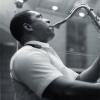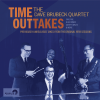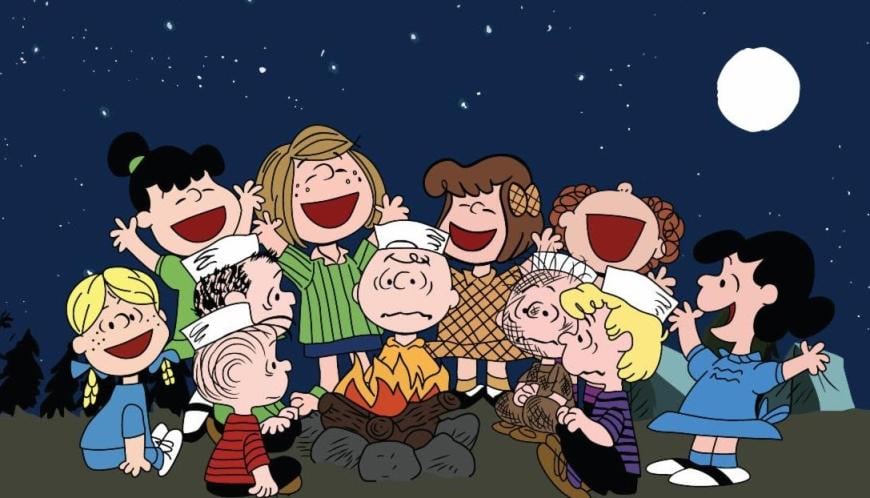
What is the bestselling jazz album of all time? Well, it’s a tie.
You can probably guess one of the albums: Miles Davis’s evergreen Kind of Blue. But the other is neither Herbie Hancock’s Head Hunters nor Dave Brubeck’s Time Out nor John Coltrane’s A Love Supreme. Not close. Rather, it’s one you may not have thought of but know well: Vince Guaraldi’s A Charlie Brown Christmas.
According to the Recording Industry Association of America, Davis’s and Guaraldi’s albums have each sold 5 million copies (as of 2019 and 2022, respectively), yet various lists of bestselling jazz albums generally ignore Guaraldi’s achievement. Until recently, that’s been the story for one of America’s most underrated but influential musicians.
It’s a fact that millions of kids and their parents heard jazz for the first time when they tuned in to one of the 15 Peanuts cartoon specials that Guaraldi scored from 1965 until literally the day of his death in 1976. Viewers may not have known that the swinging, wistful, hip, coolly detached, playful music accompanying the adventures and trials of Charlie Brown and his gang was jazz, but they liked it.
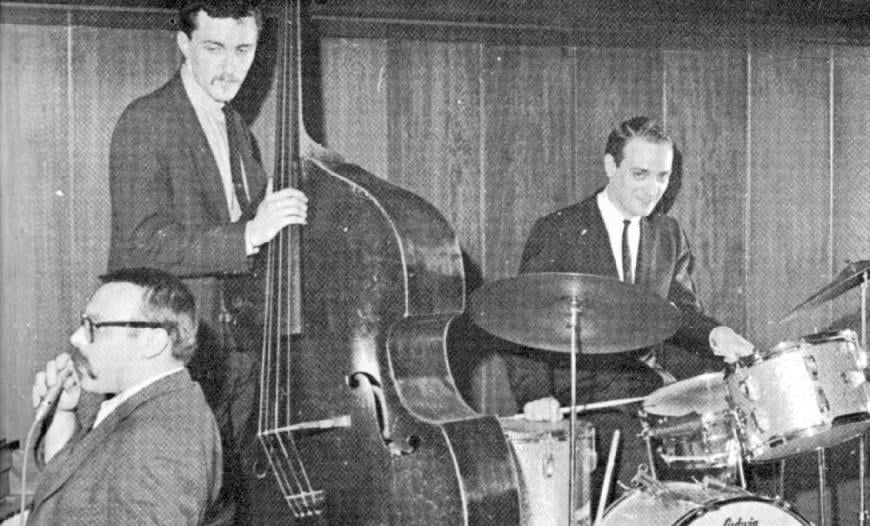
In the background, there was a musical evolution going on from special to special. Guaraldi developed and altered his themes, augmented his jazz piano trio with additional players, added Fender Rhodes, Wurlitzer, Moog, and ARP electronic keyboards to the instrumentation, and generally pushed in ever more “progressive” directions.
With such a lucrative TV franchise, there should have been a whole series of soundtrack albums. But until recently, only A Charlie Brown Christmas — plus the score to a documentary never aired in its entirety, A Boy Named Charlie Brown, and a short Guaraldi studio album of Peanuts music, Oh Good Grief! — had been issued. The rest of the music to the TV specials was kept under wraps, and Guaraldi’s fans had to be content with picking out low-level, lo-fi bits and pieces of his music mixed in with the program’s sound effects and dialogue.
Now, more than half a century later, Jason and Sean Mendelson — the sons of the producer of those Peanuts specials, the late Lee Mendelson (whose production company has owned the music since 1990) — have taken up the task of releasing Guaraldi’s scores in pristine form. The brothers have already released “definitive” editions of the soundtracks for It’s the Great Pumpkin, Charlie Brown (for Concord’s Craft division) and A Charlie Brown Thanksgiving (on their own LMFP label). On July 5, It Was a Short Summer, Charlie Brown came out after a preview limited edition was sold out on Record Store Day (April 20).
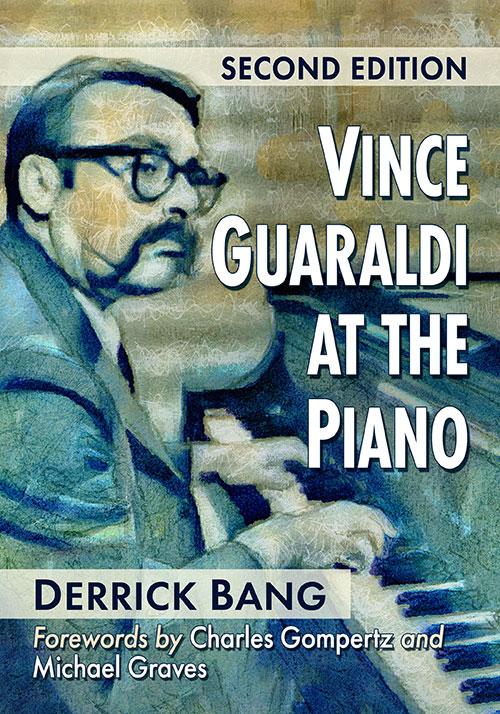
Why wasn’t this music released during Guaraldi’s lifetime or in the following decades? Derrick Bang, the author of Vince Guaraldi at the Piano, an expanded second edition of which came out in May of this year, gives a complicated answer: “Number one, nobody knew where the original studio recordings were or whether they still existed,” he says. “Number two, [Guaraldi] was without a record label, although he went into the studio a lot. He also didn’t tour because he didn’t need to. When you don’t tour, people tend to forget you. [Also] as for why the scores weren’t released, I think at that point in time, everyone thought the success of the Christmas album was a one-off.”
“I think they were so busy making the shows,” says Jason Mendelson, noting that in the year 1969 alone, Lee Mendelson, Peanuts creator Charles M. Schulz, animator Bill Melendez, and Guaraldi were occupied with three Peanuts projects in a row, including It Was a Short Summer, a feature film, and a documentary. “I also think that Vince had a falling-out with his record company and was on his own at this point, so there wasn’t a natural home to do the soundtracks.
“Also, the scores for the show were less than 25 minutes [long]. Part of what we’ve been doing is taking what we’ve found and trying to get a full-length album out of the soundtrack, [using] all the bonus material of things that were on the cutting-room floor for various reasons.”
Sean Mendelson notes that “the Charlie Brown Christmas album was recorded for the show and also recorded in stereo for the purpose of being sold to the masses. The five shows that followed Charlie Brown Christmas were recorded in mono without [that] intention. Furthermore, Vince Guaraldi had parallel things happening. He was trying to become a jazz artist in his own right, recording music separate from Peanuts. So during that period when he had all these six or seven specials going on, he was working on long-form jazz that [was]what he wanted to perform live.”
Another possible reason for the long slumber of Guaraldi’s Peanuts music may have been the lack of support from the doctrinaire jazz police of the day. As flutist Herbie Mann sardonically once said, “If you’re in jazz and more than 10 people like you, you’re labeled commercial” — and Guaraldi’s music was certainly popular and perhaps a source of envy for others. He was between worlds, embracing the tools of jazz-rock while not giving up acoustic jazz, too imbedded in popular culture to be considered a major jazzer by those who make such decisions. And there was the stigma of making music for a children’s show, which for the cognoscenti was not worth taking seriously.
Guaraldi spent his years at home in Mill Valley composing Peanuts scores and playing at San Francisco Bay Area clubs. He was only 47 when he suddenly died of a heart attack in between sets at Butterfield’s in Menlo Park on Feb. 6, 1976. The music world outside the Bay Area hardly noticed.
Bang attributes the beginning of the Guaraldi renaissance to pianist David Benoit covering the Peanuts specials’ flagship tune, “Linus and Lucy,” in 1985, that cover getting airplay on jazz radio stations. “That in turn enabled [Benoit] to sign with GRP, and it revived interest in that song,” Bang says.
Other artists followed as the tune became associated with Christmas. An all-star assembly of jazz musicians was recruited for a commemorative album marking 40 years of Peanuts comics, Happy Anniversary, Charlie Brown. Wynton Marsalis, who grew up watching the specials, recorded an album, Joe Cool’s Blues, that featured his father Ellis Marsalis playing Guaraldi tunes on piano. Albums of Peanuts music from Cyrus Chestnut and George Winston spread the word further.
The Christmas album, which Fantasy Records had issued but never promoted aggressively, had been a steady seller every December, finally achieving double-platinum status (2 million copies sold) in 1996. When Concord absorbed Fantasy in 2004 and started promoting the album, sales gathered speed.
Guaraldi’s son David put out two albums of Lost Cues in the 2000s without access to the original masters. Then, during the COVID-19 lockdown, the Mendelsons got in touch with Bill Melendez Productions and went through a number of storage units, mining for gold.
“We [had] released, through Concord, the Great Pumpkin album [in 2018], and I didn’t particularly care for how it turned out,” Jason Mendelson says. “So I said, ‘I’ve got to find a better version of this.’ And that’s when we first found, ironically enough, not the Great Pumpkin but another one of these tapes, and when I transferred it, it was like finding the Holy Grail. It was all of the original session music from one of the shows in all its glory, not mitigated by dialogue and effects and other things.”
“So many things were unlabeled,” says Bang about the search. “Everything they found initially were copies of things that were shown on television, with dialogue and sound effects and no good way to extract them. They had 18 months to work on this, and the happy end is that they found a lot.”
A new, splendid-sounding version of Great Pumpkin using the master tapes came out in August 2022 — unfortunately, with the same cover art as the 2018 release, thus causing some confusion. (The new version has 24 tracks compared with the older recording’s 17.) A Charlie Brown Thanksgiving, which straddles the fence between acoustic jazz and Guaraldi’s electric jazz experiments, followed in October 2023.
The Mendelsons put out It Was a Short Summer as a 45-rpm disc, running 28 minutes, including six outtakes. The sound is staggeringly deep and clear as a result of the higher speed since more of the signal can be captured in the grooves.
“Of the ones we have found, this is the best-sounding album, and it’s pretty cool because it’s the largest combo that Guaraldi laid down,” Sean Mendelson says. “Everyone is so surprised [because] these tapes are 55 years old.”
Next for the Mendelson brothers is the first-ever release of You’re Not Elected, Charlie Brown, set to come out in September, just ahead of the November presidential election. After that, they will play it by ear.
“A Short Summer is the big experiment because it’s not [tied to] a holiday,” says Bang. “We were concerned that the big three were going to draw the most interest. As long as it does at least as well as Thanksgiving, [the brothers] would like to release all of [the shows]. Whether they do will come down to economics.”
“I hope we’re going to do more next year, which is the 75th anniversary of Peanuts,” says Jason Mendelson. “My goal is to release everything we can that will honor Vince. I want to do it in a responsible way that will get all of his music out there and make it available to the public, but there are certain things that we haven’t found. We have a lot of stuff to go through.
“What’s so great about Charlie Brown is that you can come to it from so many different angles, different political perspectives, or different psychological perspectives. It’s children who talk about their problems and go through what we all experience as the human condition. And I think similarly with the music, it’s very playful and childlike, but it’s very sophisticated jazz in some places. And if you’re a fan of that, you can just sit back and enjoy this amazing music.”



